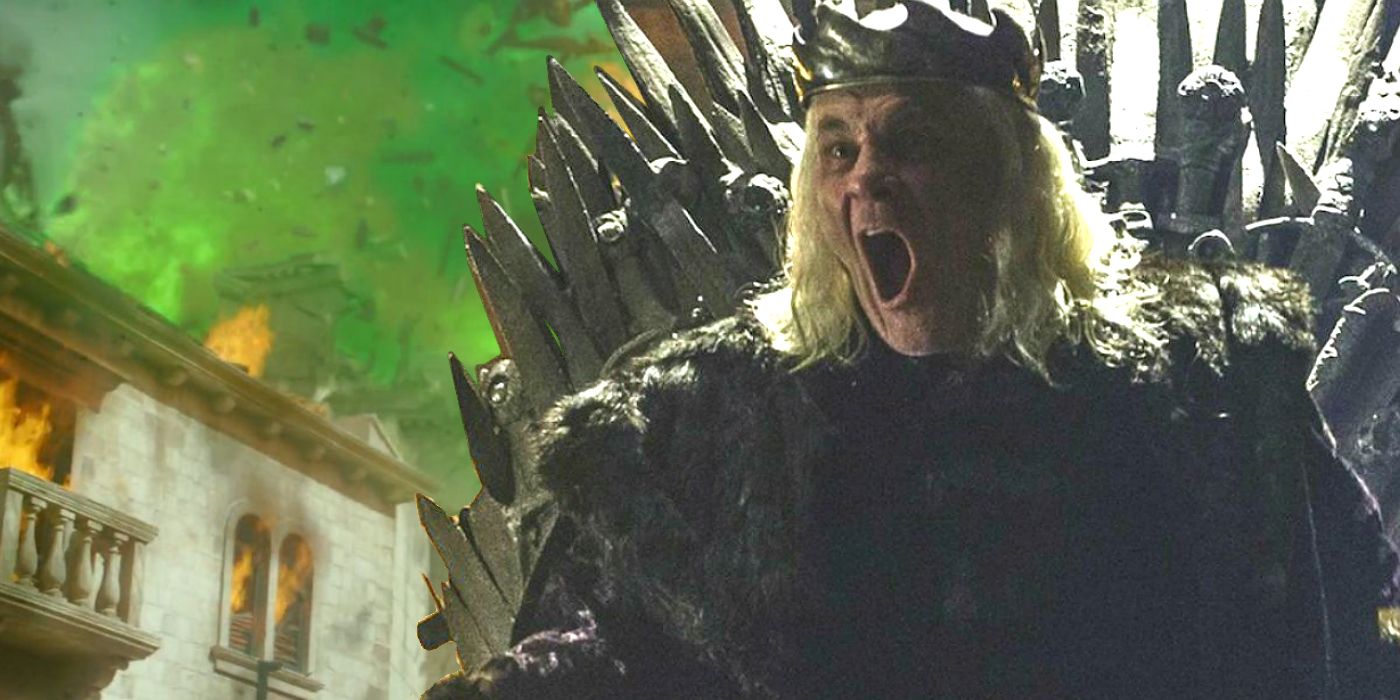Historical Context: The Mad King Got

The mad king got – The term “the Mad King” has been used throughout history to refer to rulers who have exhibited extreme or erratic behavior. These individuals have often been characterized by their unpredictable actions, eccentric personalities, and disregard for social norms.
The Mad King got what he deserved, but not before he left a trail of destruction in his wake. His reign of terror ended with his death, but his legacy continues to haunt Westeros. One of the most memorable characters from that era is Rosabell Laurenti Sellers, who played Tyene Sand in Game of Thrones.
Rosabell Laurenti Sellers Game of Thrones Sellers brought a sense of vulnerability and strength to the role, and her performance helped to make Tyene one of the most complex and sympathetic characters in the series. The Mad King may be gone, but his legacy continues to live on through the characters he created.
One of the most famous examples of a Mad King is Ludwig II of Bavaria. Ludwig was known for his extravagant lifestyle and obsession with building elaborate castles. He was also deeply involved in the arts and was a patron of Richard Wagner. Ludwig’s eccentric behavior and financial extravagance eventually led to his deposition in 1886.
The Mad King got away with his madness for far too long, but in the end, his own people turned against him. His reign of terror came to an abrupt end when he was assassinated by his own Kingsguard. His death was a relief to the people of Westeros, but it also left a void in the power structure.
Rosabell Laurenti Sellers, who played Tyene Sand in Game of Thrones, has said that she believes the Mad King’s death was a turning point in the series. She said that it showed that even the most powerful people are not immune to the consequences of their actions.
Common Characteristics
There are several common characteristics that are often associated with Mad Kings. These include:
- Extreme or erratic behavior
- Eccentric personalities
- Disregard for social norms
- Financial extravagance
- Obsession with particular interests
Literary and Cultural References

The character of “the Mad King” has been a recurring figure in literature and culture throughout history. This character often embodies themes of power, madness, and the fragility of human reason.
One of the most famous examples of “the Mad King” is Shakespeare’s King Lear. Lear is a powerful ruler who descends into madness after dividing his kingdom among his three daughters. Lear’s madness is both a personal tragedy and a symbol of the chaos that can result from unchecked power.
Other Literary and Cultural References
- In the Arthurian legend, King Arthur is driven mad by the treachery of his wife, Guinevere, and his knight, Lancelot.
- In the Greek myth, King Agamemnon is driven mad by the goddess Athena after he sacrifices his daughter, Iphigenia.
- In the opera “Lucia di Lammermoor,” the title character is a young woman who goes mad after being forced to marry a man she does not love.
- In the film “The Shining,” the character of Jack Torrance is a writer who descends into madness while isolated in a remote hotel.
These are just a few examples of the many literary and cultural references to “the Mad King.” This character continues to fascinate and horrify audiences because it represents the dark side of human nature.
Psychological Analysis

The “Mad King” exhibits a complex array of psychological characteristics that defy easy categorization. His behavior is marked by extreme mood swings, paranoia, delusions, and hallucinations. He is often irrational and impulsive, and his actions are frequently unpredictable.
The causes of the Mad King’s madness are likely multiple and complex. Genetic factors may have played a role, as madness often runs in families. The Mad King may also have suffered from a traumatic childhood experience that left him with deep-seated psychological scars.
Personality Disorders
- Antisocial Personality Disorder: Characterized by a lack of empathy, remorse, and disregard for social norms. Individuals with this disorder often engage in criminal behavior and have difficulty forming meaningful relationships.
- Borderline Personality Disorder: Involves a pattern of unstable relationships, self-image, and emotions. Individuals with this disorder may experience intense mood swings, impulsive behavior, and difficulty controlling their anger.
- Narcissistic Personality Disorder: Characterized by an inflated sense of self-importance, a need for admiration, and a lack of empathy. Individuals with this disorder often have grandiose fantasies and believe they are superior to others.
Mental Illnesses, The mad king got
- Schizophrenia: A severe mental illness that affects a person’s thoughts, feelings, and behavior. Symptoms include hallucinations, delusions, disorganized speech, and impaired social functioning.
- Bipolar Disorder: A mood disorder that causes extreme swings in mood, energy, and activity levels. Individuals with this disorder may experience episodes of mania, depression, or both.
- Major Depressive Disorder: A mood disorder that causes persistent feelings of sadness, hopelessness, and worthlessness. Individuals with this disorder may also experience loss of interest in activities they once enjoyed, changes in appetite or sleep, and difficulty concentrating.
It is important to note that these are just a few of the possible psychological conditions that could be responsible for the Mad King’s madness. A definitive diagnosis would require a thorough evaluation by a qualified mental health professional.
In his madness, the king got lost in a labyrinth of shadows, where even the sun refused to shine. He wandered aimlessly, his mind a jumbled mess. But amidst the chaos, there was a flicker of hope, a distant light that guided him towards a forgotten truth.
Like fabrizio laurenti , the mad king had lost his way, but in his darkest hour, he found a path that led him back to himself.
The Mad King got what he deserved, his reign of terror finally coming to an end. But his legacy lives on, not only in the memories of those who suffered under his rule, but also in the game of thrones banners that still fly high above the Seven Kingdoms, a reminder of the madness that once consumed the realm.
The Mad King got up from his throne and paced the room. His eyes were wild and his hair was a mess. He was muttering to himself about the dragons and the White Walkers. He was so caught up in his madness that he didn’t notice the knight who had entered the room.
The knight was tall and handsome, with a sword at his side. He bowed to the Mad King and said, “Your Grace, I am here to take you to a knight of the seven kingdoms show.” The Mad King stopped pacing and looked at the knight.
“A knight?” he said. “What do I need with a knight?” The knight said, “To protect you, Your Grace. The White Walkers are coming.” The Mad King laughed. “The White Walkers are coming,” he said. “Well, let them come.
I’ll be waiting for them.” The knight shook his head and said, “You don’t understand, Your Grace. The White Walkers are not like any enemy you have ever faced before. They are cold and cruel, and they will stop at nothing to destroy everything in their path.” The Mad King looked at the knight and said, “I am not afraid of them.
I am the Mad King. I am the one who will defeat them.” The knight sighed and said, “I hope you are right, Your Grace. But I fear that you are mistaken.” The Mad King smiled and said, “We shall see.”